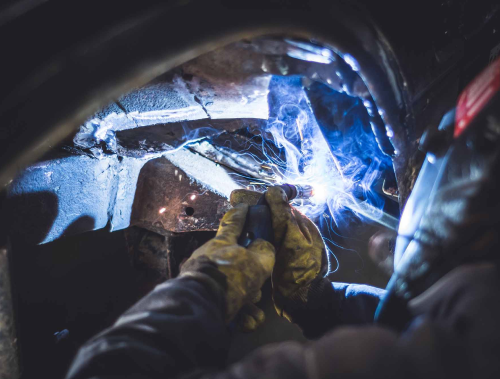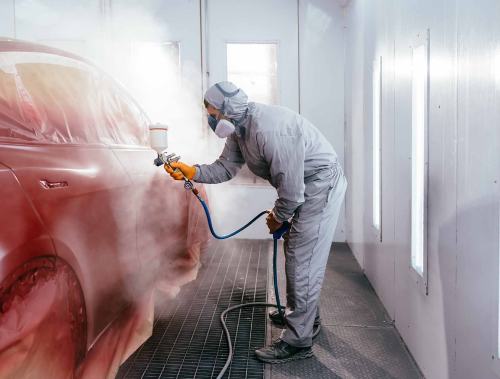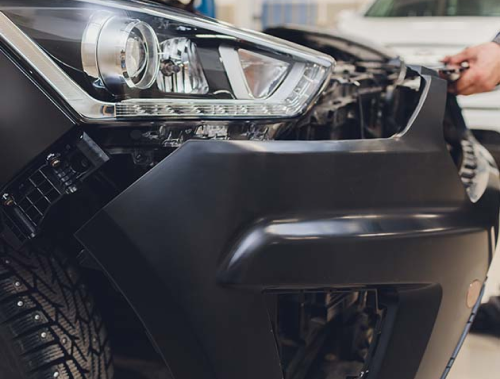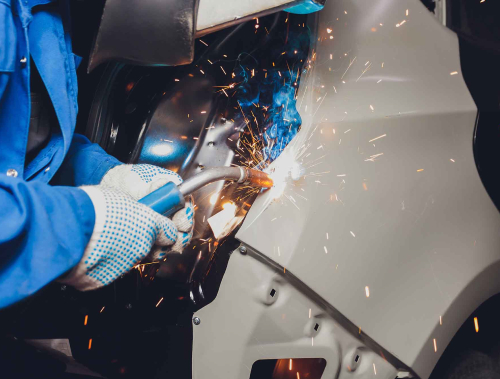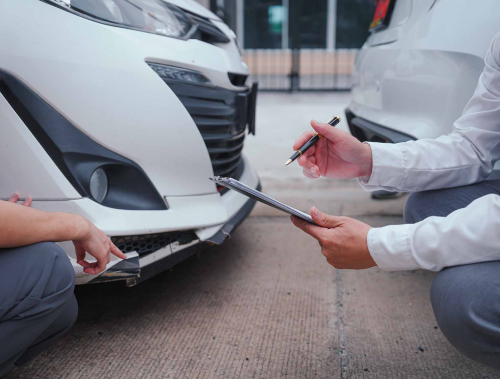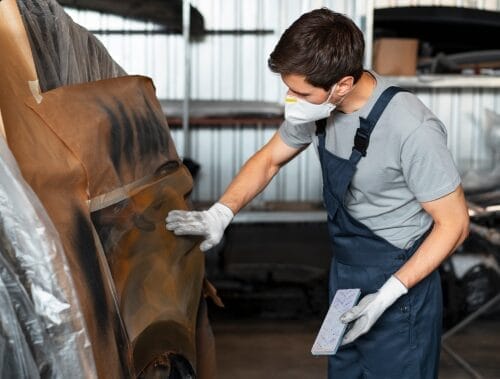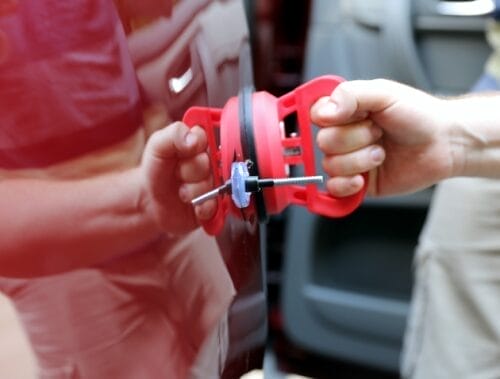When your vehicle requires auto body repair, ensuring the highest quality of work is essential—not just for aesthetic reasons but for your safety and the vehicle’s long-term performance. This guide is designed to provide car owners, insurance adjusters, and auto body shop owners with the knowledge needed to guarantee top-tier repair work. From selecting the right repair shop to understanding the importance of using the proper equipment and parts, this resource covers all the key aspects of high-quality auto body repairs.
Importance of Quality Auto Body Repairs
Quality in auto body repairs is non-negotiable. After an accident, your vehicle’s safety, value, and longevity hinge on the repair work’s quality. Let’s explore why these factors are so critical.
Safety Considerations
First and foremost, safety is the primary concern when it comes to auto body repairs. Post-accident repairs are not just about making the vehicle look good—they are about restoring it to its pre-accident condition, ensuring that all safety features function as intended. Poor-quality repairs can compromise critical systems, such as airbags, crumple zones, and electronic stability controls, leading to potential hazards on the road. Therefore, choosing a repair shop that adheres to strict safety standards is crucial for your peace of mind and the safety of everyone on the road.
Long-Term Value
Beyond safety, high-quality repairs also protect the long-term value of your vehicle. A properly repaired vehicle will maintain its structural integrity and appearance, which is essential for preserving its resale value. Conversely, subpar repairs can lead to issues such as paint mismatches, misaligned panels, and rust, all of which can significantly diminish the vehicle’s worth over time. Investing in quality repairs today can save you from costly problems down the line and help retain the vehicle’s value.
Choosing the Right Auto Body Shop
Selecting the right auto body shop is a critical step in ensuring quality repairs. Not all shops are created equal, and several factors should be considered when making your choice.
Technician Expertise
The expertise of the technicians working on your vehicle is a major determinant of the repair quality.
- Certification and Training: It’s essential to select a shop where the technicians are certified and have undergone extensive training. Certifications such as those from the ASE (Automotive Service Excellence) and I-CAR (Inter-Industry Conference on Auto Collision Repair) indicate that the technicians have met industry standards and are knowledgeable about the latest repair techniques.
- Experience: While certifications are important, experience also plays a significant role. A shop with a proven track record and experienced staff is more likely to deliver high-quality repairs. Technicians who have dealt with a wide range of vehicles and repair scenarios are better equipped to handle complex repairs and ensure that every aspect of your vehicle is restored to its original condition.
Use of Proper Equipment
The tools and technology used in the repair process are just as important as the technicians’ skills.
- Advanced Tools and Technology: Modern vehicles are built with advanced materials and technologies, requiring equally advanced equipment for repairs. A shop that invests in state-of-the-art tools can perform repairs with greater precision and efficiency, ensuring that all components fit together perfectly and that the vehicle is restored to its pre-accident condition.
- Alignment and Calibration: Accurate frame alignment and system calibration are critical for safety. Advanced equipment ensures that these processes are performed with high precision, reducing the risk of issues such as improper steering, uneven tire wear, or misaligned panels. Proper calibration of electronic systems, such as driver assistance features, is also essential to maintain safety and performance standards.
Quality of Parts Used
The parts used in the repair process can significantly impact the quality and longevity of the repair.
- Genuine vs. Aftermarket Parts: When it comes to replacement parts, not all are created equal. OEM (Original Equipment Manufacturer) parts are made by the vehicle’s manufacturer and are designed to fit and function exactly like the original components. In contrast, aftermarket parts are produced by third-party companies and may vary in quality and fit. While aftermarket parts can be more affordable, they may not always meet the same standards as OEM parts, potentially compromising the repair quality.
- Warranty on Parts: A good repair shop will offer a warranty on the parts they use. This not only provides peace of mind but also ensures that the parts are of high quality and that the shop stands behind their work. A warranty can be a sign of the shop’s commitment to using reliable parts and delivering long-term repair quality.
Quality Control Measures
Ensuring repair quality goes beyond just choosing the right shop. Quality control measures play a crucial role in delivering repairs that meet industry standards and satisfy customer expectations.
Inspection Process
Thorough inspections are vital at every stage of the repair process.
- Initial and Ongoing Inspections: Before any repairs begin, a detailed inspection is necessary to identify all the damage, including hidden issues that may not be immediately apparent. Throughout the repair process, ongoing inspections help ensure that all damage is properly addressed and that the repairs are progressing as planned.
- Post-Repair Inspection: Once the repairs are complete, a comprehensive post-repair inspection is essential. This final check ensures that the vehicle has been fully restored and that all repairs meet industry standards. Any remaining issues can be identified and corrected before the vehicle is returned to the owner, ensuring both safety and customer satisfaction.
Road Testing
Road testing is a critical component of the quality control process, verifying that the repairs perform as expected under real driving conditions.
- Verification of Repairs: A road test allows technicians to confirm that the repairs not only look good but also function correctly. This includes checking the alignment, brakes, suspension, and electronic systems to ensure that the vehicle handles as it should and that all safety features are operational.
- Addressing Issues: If any issues are identified during the road test, they should be addressed immediately. This proactive approach ensures that the vehicle is in perfect condition when it is returned to the owner, minimizing the risk of future problems and maximizing customer satisfaction.
Customer Communication and Satisfaction
Effective communication between the auto body shop and the customer is crucial for ensuring a positive repair experience. Transparency and regular updates help build trust, while a focus on customer satisfaction can lead to long-term loyalty and positive word-of-mouth for the business.
Clear Communication
Maintaining open and honest communication throughout the repair process is essential for setting the right expectations and avoiding misunderstandings.
- Transparency: Auto body shops should prioritize clear and honest communication with their customers. This includes providing detailed explanations of the damage, the necessary repairs, and any associated costs. Transparency helps customers understand the work being done on their vehicle and builds trust between the customer and the repair shop. For example, if additional damage is discovered during the repair process, the shop should promptly inform the customer and explain the implications, both in terms of safety and cost.
- Regular Updates: Keeping customers informed about the progress of their vehicle’s repairs is another key aspect of good communication. Regular updates can be provided through phone calls, emails, or even text messages, depending on the customer’s preference. These updates should include information about the repair status, any delays, and any new issues that may have arisen. This proactive communication helps manage customer expectations and reduces the likelihood of frustration or dissatisfaction.
Customer Satisfaction
Ensuring that customers are satisfied with the repair work is not just about the quality of the repairs themselves but also about how the entire process is managed.
- Feedback and Reviews: Customer feedback is invaluable for assessing the quality of a repair shop’s work. Shops should actively seek out feedback after the repair is completed, whether through surveys, follow-up calls, or review platforms. Online reviews play a significant role in a shop’s reputation, influencing potential customers’ decisions. Encouraging satisfied customers to leave positive reviews can help build a strong online presence, while addressing negative feedback promptly and professionally can demonstrate a commitment to continuous improvement.
- Warranty on Workmanship: Offering a warranty on repair work is a strong indication of a shop’s confidence in the quality of its services. A warranty not only provides peace of mind for the customer but also reinforces the shop’s commitment to delivering reliable and durable repairs. This can be a significant factor in customer satisfaction and loyalty, as customers are more likely to return to a shop that stands behind its work.
Ensuring Repair Quality as an Insurance Adjuster
Insurance adjusters play a critical role in maintaining repair quality by selecting the right repair shops and verifying the quality of completed repairs. Their involvement helps ensure that the repairs meet industry standards and that policyholders receive the best possible service.
Shop Selection Criteria
Choosing the right repair shops is essential for ensuring that quality standards are consistently met.
- Approved Repair Networks: Insurance companies often have networks of approved repair shops that meet specific quality criteria. These shops are typically vetted for their expertise, equipment, and customer service standards. By selecting shops from an approved network, insurance adjusters can have greater confidence that the repairs will be completed to a high standard. This not only ensures the safety and satisfaction of the policyholder but also helps control costs by reducing the likelihood of repeat repairs or additional claims.
- Regular Audits: To maintain high standards of quality, insurance companies should conduct regular audits of the shops in their approved networks. These audits can include reviews of repair processes, inspections of completed work, and assessments of customer satisfaction. Regular audits help ensure that shops continue to meet the required standards and provide consistent, high-quality repairs.
Post-Repair Verification
Once the repairs are completed, it is crucial to verify that the work meets the expected quality standards.
- Independent Inspections: In cases involving significant damage, independent inspections can be an important step in verifying the quality of repairs. These inspections provide an unbiased assessment of the repair work, ensuring that it meets all safety and performance standards. Independent inspections can also help identify any potential issues that may have been overlooked during the initial repairs, providing an opportunity for corrections before the vehicle is returned to the owner.
- Customer Feedback: Customer feedback is a valuable tool for insurance adjusters when assessing the quality and reliability of the shops in their network. By regularly collecting and reviewing feedback from policyholders, adjusters can identify trends, address any recurring issues, and make informed decisions about which shops to continue working with. This feedback loop helps maintain high standards of repair quality across the network.
Conclusion
Ensuring high-quality auto body repairs requires a collaborative effort between car owners, repair shops, and insurance adjusters. Expert technicians, advanced equipment, quality parts, and clear communication are all essential elements in delivering repairs that meet or exceed industry standards. By choosing the right repair shop, implementing rigorous quality control measures, and prioritizing customer satisfaction, everyone involved can contribute to a repair process that ensures safety, preserves vehicle value, and fosters trust and loyalty.

